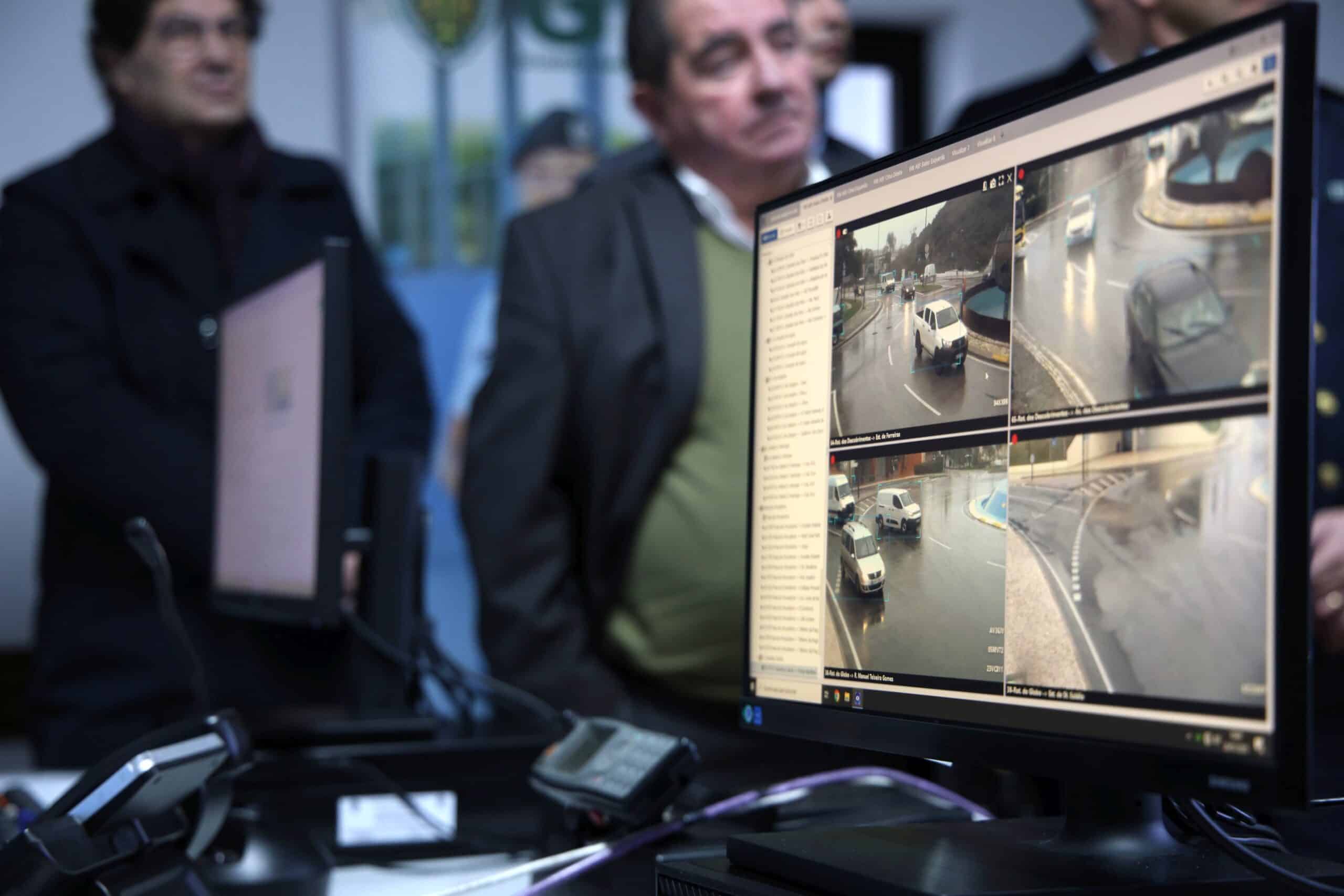Albufeira invests €900,000 in CCTV surveillance cameras, the first to be operated exclusively by GNR police in the Algarve
A new €900,000 CCTV surveillance system was inaugurated in the Algarve’s tourist hotspot of Albufeira on Monday morning (January 20).
The system, operational since December 30, 2024, features 65 high-tech cameras strategically positioned throughout the town.
Operating around the clock, seven days a week, the new surveillance network covers areas with a high incidence of police reports or strategic importance. These include popular nightlife spots like Avenida Sá Carneiro – in the town’s infamous Oura bar district – and downtown Albufeira, as well as key traffic junctions such as the Inatel, Três Palmeiras, Globo and Descobrimentos roundabouts.
“This is an innovative experience for us,” said Lieutenant Colonel Paulo Santos, Deputy Commander of the Faro GNR Territorial Command, explaining that this is the first CCTV system to be exclusively operated by GNR police in the Algarve.
The new system does not aim to “in any way replace day-to-day patrols” but instead act as a complementary form of policing, he said. Its primary goal is to bolster public safety, prevent crime and terrorist acts, and enhance response capabilities during large-scale events, such as Albufeira’s New Year’s Eve celebrations, where it was already put to use.

According to Paulo Santos, the cameras boast cutting-edge technology, including 360-degree image capture, high resolution, and video analytics. One notable feature is the ability to read vehicle licence plates, which has already proven useful in identifying and tracking vehicles involved in suspicious activities. The system also has vandalism-proof equipment and secure fibre-optic connections, ensuring uninterrupted service.
The video surveillance system can also serve as a critical toll in criminal investigations. As Lieutenant Colonel Santos explained, images extracted from the system can be used as evidence in legal proceedings, not only by GNR but also by other law enforcement agencies, such as PJ and PSP police forces.
The system also has real-time alert capabilities that allow it to detect potentially unusual activity, such as a crowd running suddenly, and notify authorities to take immediate action, explained Marco Henriques, GNR Commander in the Algarve. Meanwhile, if a suspicious vehicle is flagged, the system can alert GNR each time it passes a camera.
Two monitoring centres have been established: one in Albufeira, housing the data repository and system servers, and another at the Faro Territorial Command.
The system is monitored exclusively by GNR police and only a select few officers are authorised to operate it. “Access to the images and treatment of the data is carried out according to legislation, following rigorous criteria,” Paulo Santos stressed.
Francisco Oliveira, president of Albufeira’s municipal assembly, believes the introduction of CCTV cameras “is extremely important” to pass on a feeling of security in a municipality often linked to late-night excesses and criminal activity – a perception that was once again criticised by Albufeira mayor, José Carlos Rolo, who insists crime statistics are misused and misinterpreted.
According to Rolo, statistics do not account for the city’s fluctuating population, which swells to nearly 500,000 during peak tourist seasons.
“Using a baseline of only 44,000 residents skews the data,” Rolo said, noting that minor offenses are weighed equally with violent crimes.
In fact, the mayor insists that crime rates have actually been dropping in Albufeira over time. Nonetheless, the mayor is open to expanding the CCTV surveillance network to other parts of the municipality, although this decision will depend “on many factors” and will be made after analysing the initial impact of the existing cameras.


























